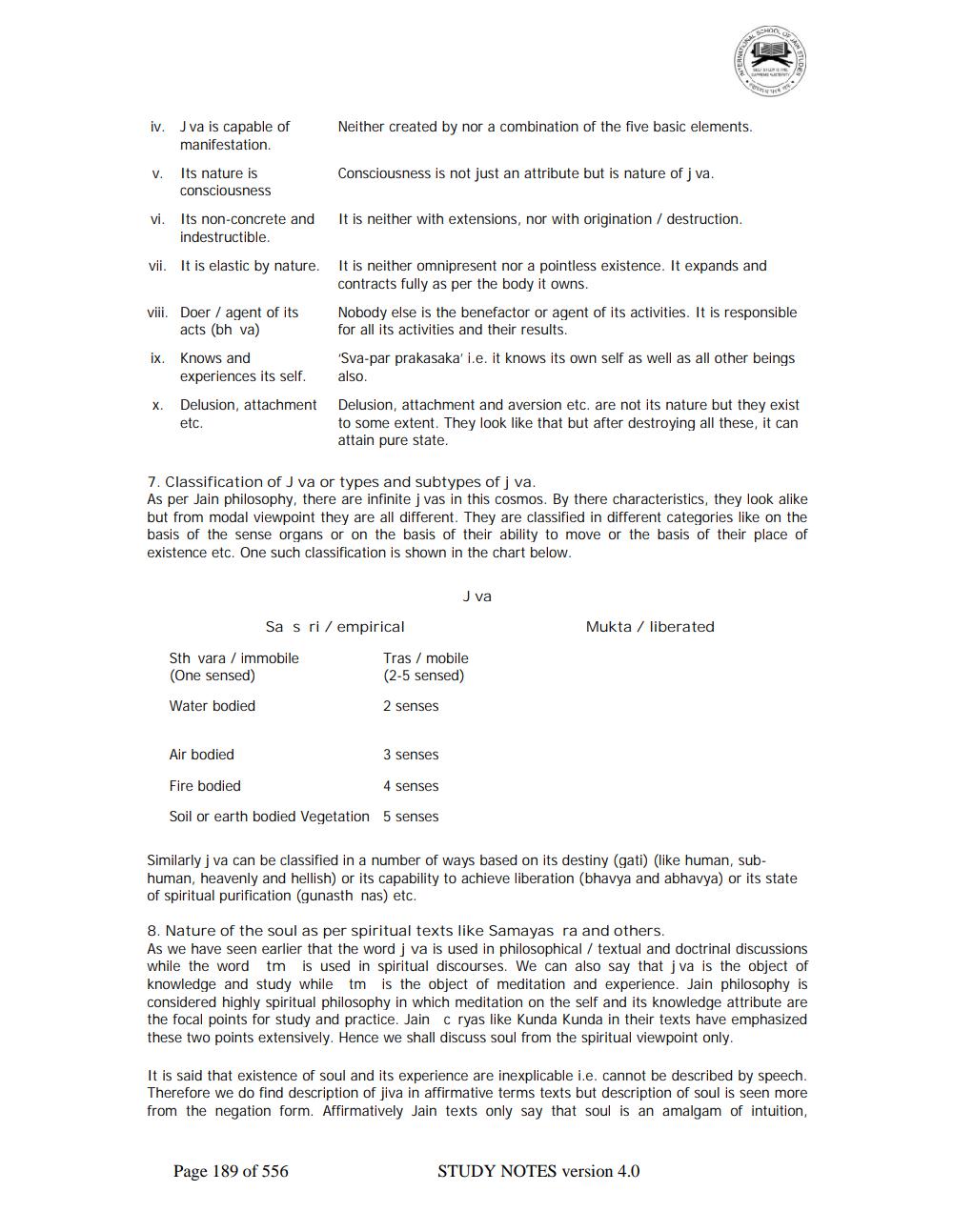________________
iv. Jva is capable of manifestation.
V.
Its nature is consciousness
vi. Its non-concrete and indestructible.
viii. Doer / agent of its acts (bh va)
ix. Knows and
X.
vii. It is elastic by nature. It is neither omnipresent nor a pointless existence. It expands and contracts fully as per the body it owns.
experiences its self.
Delusion, attachment etc.
Neither created by nor a combination of the five basic elements.
Consciousness is not just an attribute but is nature of j va.
Sth vara / immobile (One sensed)
Water bodied
It is neither with extensions, nor with origination / destruction.
Nobody else is the benefactor or agent of its activities. It is responsible for all its activities and their results.
'Sva-par prakasaka' i.e. it knows its own self as well as all other beings also.
7. Classification of J va or types and subtypes of j va.
As per Jain philosophy, there are infinite j vas in this cosmos. By there characteristics, they look alike but from modal viewpoint they are all different. They are classified in different categories like on the basis of the sense organs or on the basis of their ability to move or the basis of their place of existence etc. One such classification is shown in the chart below.
Delusion, attachment and aversion etc. are not its nature but they exist to some extent. They look like that but after destroying all these, it can attain pure state.
Sa s riempirical
Page 189 of 556
Air bodied
3 senses
Fire bodied
4 senses
Soil or earth bodied Vegetation 5 senses
J va
Tras / mobile (2-5 sensed)
2 senses
Mukta liberated
Similarly j va can be classified in a number of ways based on its destiny (gati) (like human, subhuman, heavenly and hellish) or its capability to achieve liberation (bhavya and abhavya) or its state of spiritual purification (gunasth nas) etc.
8. Nature of the soul as per spiritual texts like Samayas ra and others.
As we have seen earlier that the word j va is used in philosophical / textual and doctrinal discussions while the word tm is used in spiritual discourses. We can also say that j va is the object of knowledge and study while tm is the object of meditation and experience. Jain philosophy is considered highly spiritual philosophy in which meditation on the self and its knowledge attribute are the focal points for study and practice. Jain c ryas like Kunda Kunda in their texts have emphasized these two points extensively. Hence we shall discuss soul from the spiritual viewpoint only.
It is said that existence of soul and its experience are inexplicable i.e. cannot be described by speech. Therefore we do find description of jiva in affirmative terms texts but description of soul is seen more from the negation form. Affirmatively Jain texts only say that soul is an amalgam of intuition,
STUDY NOTES version 4.0




